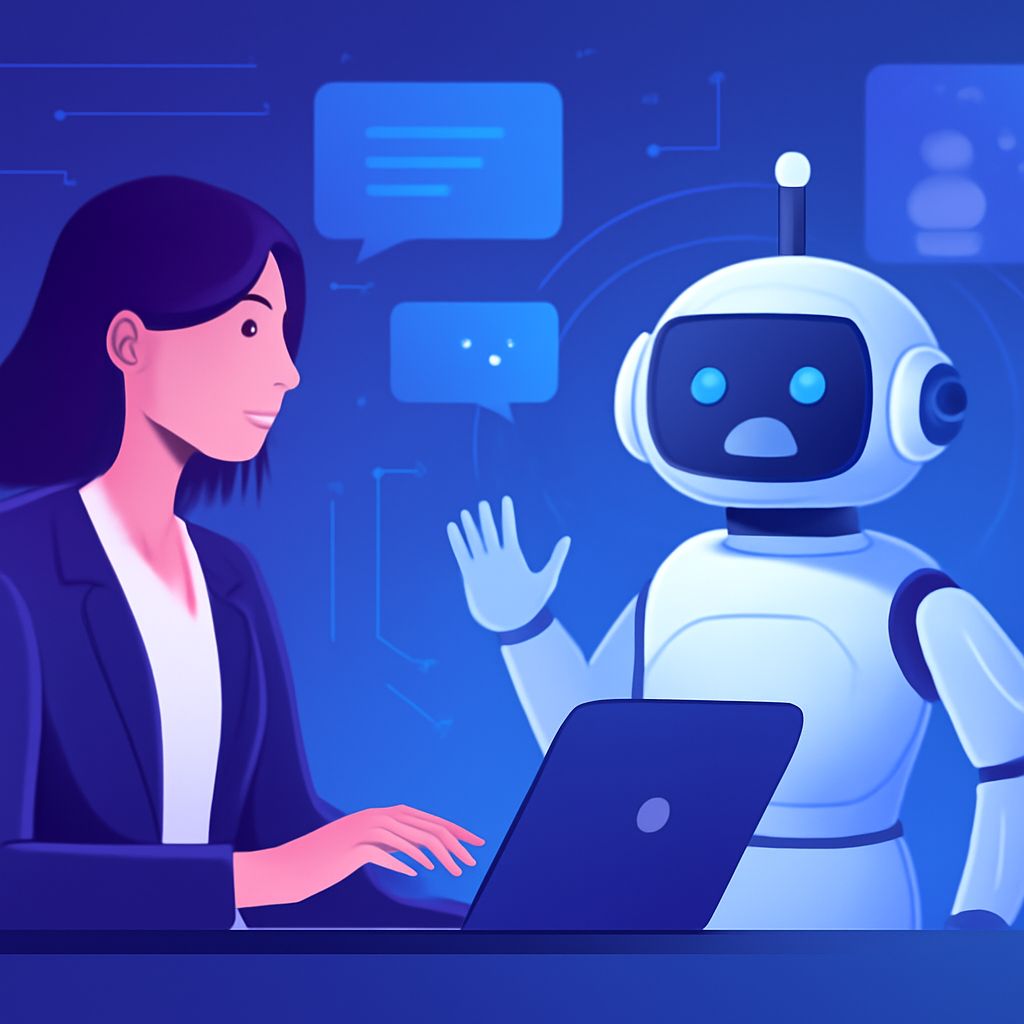Revolutionizing Customer Service: The Future of Chatbot Automation
In recent years, the continuous evolution of artificial intelligence has significantly impacted various aspects of business operations, among which customer service stands out prominently. Chatbot automation has emerged as a groundbreaking solution, transforming how businesses interact with their customers. From providing instant responses to addressing complex queries, chatbots are becoming an indispensable tool in enhancing customer experiences and operational efficiency.
As businesses increasingly prioritize customer experience, chatbot automation is set to revolutionize the way support is delivered. By leveraging advancements in conversational AI, organizations can provide instantaneous assistance while maintaining a personal touch. For those looking to enhance their chatbot strategies, understanding best practices for conversational AI is essential.
The Advent of Chatbot Technology
Chatbots, or conversational agents, are powered by artificial intelligence to simulate human-like conversations with users. The earliest versions of chatbots were simple, rule-based systems capable of handling only straightforward queries. However, with advancements in natural language processing (NLP) and machine learning, today’s chatbots are much more sophisticated.
These modern chatbots can understand context, detect user intent, and even learn from interactions to provide increasingly accurate responses. They are not just limited to text-based platforms but are also integrated into voice-activated systems such as Amazon Alexa and Google Assistant, broadening their usability across different customer touchpoints.
Benefits of Chatbot Automation in Customer Service
The integration of chatbot automation presents numerous benefits that are reshaping the landscape of customer service:
- 24/7 Availability: Unlike human agents, chatbots do not require rest, thus ensuring customer queries are addressed promptly at any time, anywhere in the world.
- Scalability: Chatbots can handle thousands of interactions simultaneously, allowing businesses to manage high volumes of requests during peak times without compromising on response time.
- Cost-Effectiveness: By automating routine tasks and reducing the dependency on human agents, businesses can significantly cut down on labor costs while maintaining service levels.
- Personalization: Advanced chatbots can integrate with customer databases to provide personalized responses, enhancing customer satisfaction and building brand loyalty.
- Data Collection and Analysis: Chatbots can collect valuable data on customer preferences and behaviors, which can be analyzed to improve future interactions and tailor marketing strategies.
The Role of AI and NLP in Enhancing Chatbot Capabilities
Artificial Intelligence (AI) and Natural Language Processing (NLP) are crucial in advancing chatbot functionalities. AI enables chatbots to perform complex decision-making processes, while NLP allows them to understand and interact in natural, human-like conversations.
The integration of sentiment analysis is a notable advancement, allowing chatbots to detect customer emotions and adjust their responses accordingly. By assessing the sentiment behind a customer’s words, chatbots can modify their tone, ensuring a more empathetic and human-like interaction.
Challenges in Chatbot Automation
Despite their numerous benefits, chatbot automation is not without challenges. One of the primary issues is the inability of some chatbots to understand nuanced language or complex queries, leading to customer frustration. Moreover, there is a potential risk of data breaches, as chatbots handle sensitive customer information.
To overcome these challenges, ongoing improvements in AI algorithms are essential. Additionally, companies must implement robust security measures to protect data integrity and privacy. Continuous training and updates of chatbot systems are also crucial to ensure they stay abreast of evolving customer needs and language trends.
Future Trends in Chatbot Automation
The future of chatbot automation is brimming with possibilities. As AI technologies continue to advance, we can expect the emergence of more intelligent and intuitive chatbot systems. Some anticipated trends include:
- Hyper-Personalization: Future chatbots will leverage AI to offer highly personalized interactions, utilizing data from social media and past interactions to tailor responses.
- Integration with IoT Devices: Chatbots may soon manage and control various Internet of Things (IoT) devices, providing seamless interaction between users and their smart environments.
- Multilingual Support: Advanced NLP capabilities will enable chatbots to support multiple languages, broadening their accessibility to a global audience.
- Improved Emotional Intelligence: Enhanced sentiment analysis and AI will allow chatbots to better understand emotional cues, resulting in more supportive and understanding customer interactions.
Conclusion
Chatbot automation is undoubtedly revolutionizing the realm of customer service by offering efficiency, scalability, and enhanced customer experiences. As technology progresses, businesses that adapt to these innovations will not only improve their service delivery but also gain a competitive edge in the market. Investing in chatbots is more than staying ahead of the curve; it’s about redefining the customer journey and setting new standards for customer satisfaction.
FAQ
What is chatbot automation in customer service?
Chatbot automation in customer service refers to the use of AI-powered bots to handle customer inquiries and tasks, offering quick and efficient responses without human intervention.
How are chatbots revolutionizing customer service?
Chatbots are revolutionizing customer service by providing 24/7 support, reducing wait times, and handling multiple queries simultaneously, leading to improved customer satisfaction and operational efficiency.
What are the benefits of using chatbots in customer service?
Benefits of using chatbots in customer service include increased efficiency, cost savings, enhanced customer engagement, consistent service delivery, and the ability to gather valuable customer insights.
What technologies are driving the future of chatbot automation?
Technologies driving the future of chatbot automation include artificial intelligence, natural language processing, machine learning, and advanced data analytics, enabling more sophisticated and personalized interactions.
Can chatbots replace human customer service agents?
While chatbots can handle many routine tasks, they are not likely to fully replace human agents. Instead, they complement human roles by managing simple queries, allowing agents to focus on complex issues.
What challenges do companies face when implementing chatbot automation?
Challenges in implementing chatbot automation include ensuring accurate and natural language understanding, integrating with existing systems, maintaining data privacy, and meeting customer expectations for conversational interactions.




